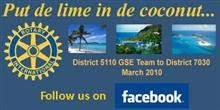 Dominica has been nicknamed the "Nature Isle of the Caribbean" for its unspoiled natural beauty. It is the youngest island in the Lesser Antilles, still being formed by geothermal-volcanic activity, as evidenced by the world's second-largest boiling lake.
Dominica has been nicknamed the "Nature Isle of the Caribbean" for its unspoiled natural beauty. It is the youngest island in the Lesser Antilles, still being formed by geothermal-volcanic activity, as evidenced by the world's second-largest boiling lake.
The island features lush mountainous rainforests, home of many very rare plant, animal, and bird species. There are xeric areas in some of the western coastal regions, but heavy rainfall can be expected inland. The Sisserou parrot, the island's national bird, is featured on the national flag. Dominica's economy is heavily dependent on both tourism and agriculture.
Christopher Columbus named the island after the day of the week on which he spotted it - a Sunday (dominica in Latin) - which fell on November 3, 1493. In the next hundred years after Columbus' landing, Dominica remained isolated, and even more Caribs settled there after being driven from surrounding islands as European powers entered the region. France formally ceded possession of Dominica to the United Kingdom in 1763. The United Kingdom then set up a government and made the island a colony in 1805.
The emancipation of African slaves occurred throughout the British Empire in 1834, and, in 1838, Dominica became the first British Caribbean colony to have a legislature controlled by a Black majority. In 1896, the United Kingdom reassumed governmental control of Dominica, turning it into a Crown colony. Half a century later, from 1958 to 1962, Dominica became a province of the short-lived West Indies Federation. In 1978, Dominica became an independent nation.
Dominica was the last of the Caribbean islands to be colonized by Europeans due chiefly to the fierce resistance of the native Caribs. In 1980, two years after independence, Dominica's fortunes improved when a corrupt and tyrannical administration was replaced by that of Mary Eugenia Charles, the first female prime minister in the Caribbean, who remained in office for 15 years. Some 3,000 Carib Indians still living on Dominica are the only pre-Columbian population remaining in the eastern Caribbean.
Dominica is an island nation and borderless country in the Caribbean Sea, the northernmost of the Windward Islands. The size of the country is about 289.5 square miles (754 km²). The capital is Roseau.
The Commonwealth of Dominica is engaged in a long-running dispute with Venezuela over Venezuela's territorial claims to the sea surrounding Isla Aves (literally Bird Island, but in fact called Bird Rock by Dominica authorities), a tiny islet located 140 miles (224 km) west of the island of Dominica.
There are two primary population centres: Roseau and Portsmouth.
Dominica possesses the most pristine wilderness in the Caribbean. Originally, it was protected by sheer mountains which led the European powers to build ports and agricultural settlements on other islands. More recently, the citizens of this island have sought to preserve its spectacular natural beauty by discouraging the type of high-impact tourism which has damaged nature in most of the Caribbean.
Visitors can find large tropical forests, including one which is on the UNESCO list of World Heritage sites, hundreds of streams, coastlines and coral reefs.
Dominica is especially vulnerable to hurricanes as the island is located in what is referred to as the hurricane region. In 1979, Dominica was hit directly by category 5 Hurricane David, causing widespread and extreme damage. On August 17, 2007, Hurricane Dean, a category 1 at the time, hit the island. A mother and her seven-year-old son died when a landslide caused by the heavy rains fell onto their house. In another incident two people were injured when a tree fell on their house. Prime Minister Roosevelt Skerrit estimated that 100 to 125 homes were damaged, and that the agriculture sector was extensively damaged, in particular the banana crop.
Boiling Lake
Dominica's Boiling Lake is situated in the Morne Trois Pitons National Park - Dominica's World Heritage site. It is a flooded fumarole 6.5 miles (10.5 km) east of Roseau, Dominica. It is filled with bubbling greyish-blue water that is usually enveloped in a cloud of vapour. The lake is approximately 200 ft (60 m) across.
The first recorded sighting of the lake was in 1870 by Mr. Watt and Dr. Nicholls, two Englishmen working in Dominica at that time. In 1875, Mr. H. Prestoe, a government botanist, and Dr. Nicholls were commissioned to investigate this natural phenomenon. They measured the water temperature and found it to range from 180 to 197 degrees Fahrenheit (82 to 91.5 degrees Celsius) along the edges, but could not measure the temperature at the centre where the lake is actively boiling. They recorded the depth to be greater than 195 ft (59 m).
Periodically, there have been fluctuations in the level and activity of the lake. It was all but empty in June 2006, however as of January 2009 the lake is full and boiling vigorously.
There is no road leading directly to the lake. It is approximately a 13 kilometer hike to the lake from the nearest road, passing sulfur springs, over mountains and through gorges along the way.
Dominica's Boiling Lake is the second largest hot spring in the world. The largest is Frying Pan Lake, located in Waimangu Valley near Rotorua, New Zealand.
PEOPLE
Almost all Dominicans are descendants of enslaved Africans brought in by colonial planters in the 18th century. Dominica is the only island in the eastern Caribbean to retain some of its pre-Columbian population--the Carib Indians--about 3,000 of whom live on the island's east coast. The population growth rate is very low, due primarily to emigration to more prosperous Caribbean Islands, the United Kingdom, the United States, and Canada.
English is the official language; however, because of historic French domination, the most widely spoken dialect is a French patois. Nearly 80% of the population is Catholic. In recent years, a number of Protestant churches have been established.
GOVERNMENT AND POLITICAL CONDITIONS
Dominica has a Westminster-style parliamentary government, and there are three political parties--the Dominica Labour Party (the majority party), the Dominica United Workers Party, and the Dominica Freedom Party. A president and prime minister make up the executive branch. Nominated by the prime minister in consultation with the leader of the opposition party, the president is elected for a 5-year term by the parliament. The president appoints as prime minister the leader of the majority party in the parliament and also appoints, on the prime minister's recommendation, members of the parliament from the ruling party as cabinet ministers. The prime minister and cabinet are responsible to the parliament and can be removed on a no-confidence vote.
The unicameral parliament, called the House of Assembly, is composed of 21 regional representatives and nine senators. The regional representatives are elected by universal suffrage and, in turn, decide whether senators are to be elected or appointed. If appointed, five are chosen by the president with the advice of the prime minister and four with the advice of the opposition leader. If elected, it is by vote of the regional representatives. Elections for representatives and senators must be held at least every 5 years, although the prime minister can call elections any time. The last election was held in May 2005.
Dominica's legal system is based on English common law. There are three magistrate's courts, with appeals made to the Eastern Caribbean Court of Appeal and, ultimately, to the Privy Council in London.
Councils elected by universal suffrage govern most towns. Supported largely by property taxation, the councils are responsible for the regulation of markets and sanitation and the maintenance of secondary roads and other municipal amenities. The island is also divided into 10 parishes, whose governance is unrelated to the town governments.
ECONOMY
Many consider Dominica's economic situation the most challenging of all the Eastern Caribbean states. However, Dominica's economy grew by 3.5% in 2005 and 4.0% in 2006, following a decade of poor performance. The country nearly had a financial crisis in 2003 and 2004. Growth in 2006 was attributed to gains in tourism, construction, offshore and other services, and some sub-sectors of the banana industry. The International Monetary Fund (IMF) recently praised the Government of Dominica for its successful macroeconomic reforms. The IMF also pointed out remaining challenges, including further reductions in public debt, increased financial sector regulation, and market diversification.
Bananas and other agriculture dominate Dominica's economy, and nearly one-third of the labor force works in agriculture. This sector, however, is highly vulnerable to weather conditions and to external events affecting commodity prices. In 2007, Hurricane Dean caused significant damage to the agricultural sector as well as the country's infrastructure, especially roads. In response to reduced European Union (EU) banana trade preferences, the government has diversified the agricultural sector by introducing coffee, patchouli, aloe vera, cut flowers, and exotic fruits such as mangoes, guavas, and papayas. Dominica has had some success in increasing its manufactured exports, primarily soap.
Dominica's currency is the Eastern Caribbean Dollar (EC$), a regional currency shared among members of the Eastern Caribbean Currency Union (ECCU). The Eastern Caribbean Central Bank (ECCB) issues the EC$, manages monetary policy, and regulates and supervises commercial banking activities in its member countries. The ECCB has kept the EC$ pegged at EC$2.7=U.S. $1.
Dominica is a beneficiary of the U.S. Caribbean Basin Initiative that grants duty-free entry into the United States for many goods. Dominica also belongs to the predominantly English-speaking Caribbean Community and Common Market (CARICOM), the CARICOM Single Market and Economy (CSME), and the Organization of Eastern Caribbean States (OECS).
FOREIGN RELATIONS
Like its Eastern Caribbean neighbors, the main priority of Dominica's foreign relations is economic development. The country maintains missions in Washington, New York, London, and Brussels and is represented jointly with other Organization of Eastern Caribbean States (OECS) members in Canada. Dominica also is a member of the Caribbean Development Bank (CDB) and the British Commonwealth. It became a member of the United Nations and the International Monetary Fund (IMF) in 1978 and of the World Bank and Organization of American States (OAS) in 1979. In March 2004, Dominica established diplomatic relations with the People's Republic of China. In January 2008, Dominica joined the Bolivarian Alternative for the Americas (ALBA).
U.S.-DOMINICAN RELATIONS
The United States and Dominica have friendly bilateral relations. The United States supports the Dominican Government's efforts to expand its economic base and to provide a higher standard of living for its citizens. U.S. assistance is primarily channeled through multilateral agencies such as the World Bank and the Caribbean Development Bank (CDB), as well as through the U.S. Agency for International Development (USAID) office in Bridgetown, Barbados. The Peace Corps also provides technical assistance to Dominica, and has volunteers on the island working primarily in education, youth development, and health.
In addition, the United States and Dominica work together in the battle against illegal drugs. Dominica cooperates with U.S. agencies and participates in counternarcotics programs in an effort to curb narco-trafficking and marijuana cultivation. In 1995, the Dominican Government signed a maritime law enforcement agreement with the United States to strengthen counternarcotics coordination, and in 1996, the government signed mutual legal assistance and extradition treaties to enhance joint efforts in combating international crime.
More Americans visit Dominica than any other national group. In 2008, tourist visitors totaled around 460,000, mainly from the United States, the French West Indies, the United Kingdom, and CARICOM.
The United States maintains no official presence in Dominica. The Ambassador and Embassy officers are resident in Barbados but travel frequently to Dominica.
Monday, October 26, 2009
Dominica
Subscribe to:
Post Comments (Atom)

.jpg)

.jpg)
No comments:
Post a Comment